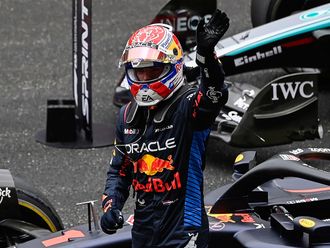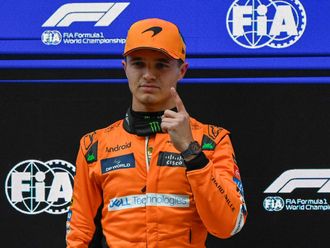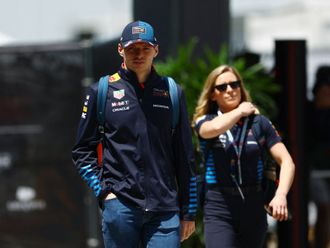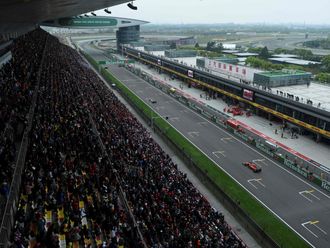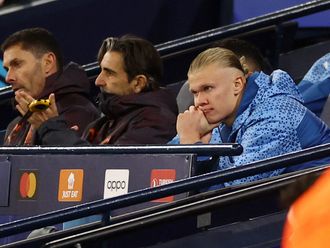Formula One is all set for its own version of Russian roulette where either hit or miss, and more than likely miss, could be the fate of those newcomers triggering hope for their big-money backers.
We are heading towards a sort of kindergarten grand-prix series with a pair of Russian rookies being drafted in to contest the 2014 campaign for Torro Rosso and Sauber.
That is, of course, if they merit a super licence. To get that, they must either be a reigning champion in a lower category such as F3 ,F2 or GP2, or must have finished consistently well in these series. And having spent 300ks at racing speed in a current F1 car.
A driver finishing, say, in the first three positions five times inside the last two years in GP2 will be eligible for the $12,800 (Dh47,007) super licence.
Daniil Kvyat, 19, and Sergey Sirotkin, 18, will both get run-outs in the Friday free practice sessions in the last two GPs in the United States and Brazil as their first steps to promotion to F1’s front line.
With a Russian grand prix on next season’s agenda, and Formula One supremo Bernie Ecclestone’s new-found friend President Vladimir Putin pushing for the event, a couple of the country’s wealthiest businessmen have opted to fund the back-up of the new boys for world recognition.
Not everybody, and certainly not Jenson Button, the ex-champion, and former racer David Coulthard, now a BBC television pundit, feel the inexperienced newcomers are ready for the severely demanding full-blooded action in the top flight.
They both feel the rookies should wait a while longer before they take on the unforgiving likes of champions Sebastian Vettel, Fernando Alonso and, hardest of all, Kimi Raikkonen.
Ironically, tied in with Max Chilton, the 22-year-old who will have done a year, the two Russians, could be the centre of real excitement with the focus fixed on the tussles of tailenders as opposed to the likes of the runaway front runners Vettel and Alonso.
The action will most assuredly be frantic among the also-rans as they strive to establish themselves as worthy beneficiaries of many millions of dollars investment in their yet-to-be-proven ability as successors to the world titles. Sirotkin, all set to become the youngest driver in F1 history and the son of a doting and mega-wealthy father Oleg who has funded his entry after striking a deal with Sauber, says: “Maybe I am too young, but that does not mean I cannot be ready. Okay, maybe spending one more year in the junior classes I could be more ready, but after one more year there there might not be a chance for me to be a Formula One driver.”
He, like Kvyat, look on Lewis Hamilton’s sensational raid on F1 when, at 22, he excelled straight from the box in 2007 with four wins, five second places and three thirds.
“You see, it can be done,” says Kvyat, who secured his Torro Rosso seat after only one serious test. “I know I am ready. No worry.”
It had Red Bull junior programme boss Helmut Marko hailing the youngster a future champion and saying: “We put him in our car and his efforts were remarkable. If a young driver proves he has the talent and passion and a high level of work ethic, we give him a chance. That’s why we chose Daniil.”
Wonderboy Vettel, four times the world champion, was 19 years and 349 days old when he made his debut in 2007 in the USA and Alonso, a double champion, was aged 19 years and 218 days in his first GP in Australia in 2001.
The Russian revolution on the grand-prix race front has been welcomed by McLaren boss Martin Whitmarsh, a keen supporter of new kids on the cylinder block.
He said: “The problem we have now is that 50 per cent of drivers in F1 pay for their seats and that makes it tricky. You cannot go and offer to teams a talented driver and they snatch your hand off. It is a case of ‘Yes, but how much are you going to pay us?’. And that is sad. I’d hope we can find a solution.”
The answer lies in the hands, talented and ready or otherwise, of the two teenagers facing the toughest task of their lives in a competition that leaves no room for error and no sympathy for failure.


